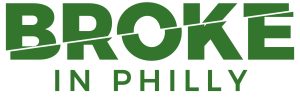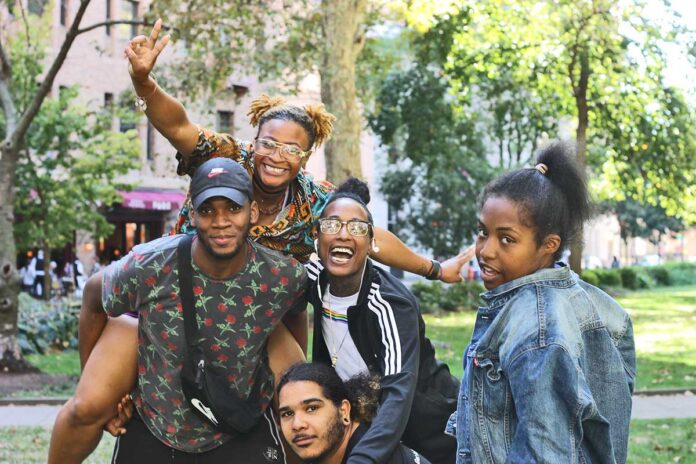Throughout the COVID-19 pandemic, the youth housing organization Valley Youth House never closed its doors. Although many of its programs switched to virtual platforms, the organization’s staff have continued to ensure that young people experiencing housing insecurity are able to pay their rent, get enough food and have stability in their daily lives.
The Valley Youth House Pride program, which serves LGBTQ+ youth in Philadelphia and other areas of Pennsylvania, took one of the biggest pandemic-induced financial hits because it relies on private funding, said Joe Lynch, vice president of development and marketing for Valley Youth House. While fewer youth were looking to move into or out of homes because of COVID-19, more young people experienced unemployment, Lynch said.
As such, “you’re looking at a number of young people who are finding themselves completely unable to pay the portions of rent that they cover. You have back rent, utilities.”
In order to bolster resources for LGBTQ youth, the Pride program recently partnered with Subaru of America’s LGBTQ employee resource group Out+Ally, which has supported the organization in past initiatives. In addition to donating $7,000 in laptops to the Pride program so youth can ultimately keep going to work and school as well as communicate with their case managers, Out+Ally committed to working with the Pride Task Force, a group of young queer and trans alumni of the Pride program who push for LGBTQ youth housing and basic rights. With the Task Force, Out+Ally is offering mentorship and job development to queer youth.
Brit Christopher, who previously received services from the Pride program, is currently part of the Pride Task Force where she focuses on facilitating housing and stability for LGBTQ youth.
“What I do mostly is just advocate for the youth,” Christopher said. “Sometimes I do outreach and do different speaking at different places, different panels. Just pushing for these things to get done and finding different methods or ideas for what we can do and how we can help.”
Christopher also works at the Juvenile Law Center in Philadelphia where she advocates for youth rights, and leads writing workshops and open mic nights for LGBTQ youth at the Achieving Independence Center, another facet of Valley Youth House. She joined the Pride Task Force after learning that 40% of homeless youth in the U.S. are part of the LGBTQ community.
“I worked in youth homelessness for a little bit,” she said. “Those kids that were homeless, they were homeless for reasons because they didn’t have parents, they just got out of care. For the LGBTQ youth, it was literally, ‘I was gay, my parents didn’t like that, they told me to get out.’ I thought that was insane, so I think my work with that really made me want to get into it more and really learn about it.”
According to a 2018 study by Chapin Hall of the University of Chicago, LGBTQ young people 18-25 years old are more than twice as likely to experience homelessness than their cishet peers.
Under normal circumstances and temperate weather conditions, members of the Pride Task Force would usually be out on the street meeting housing-insecure youth and offering them services. The pandemic has thrown somewhat of a wrench in that outreach work, Christopher said.
“Figuring out how to address that is one thing that we’re working on,” she said. “But also figuring out more resources — we created Host Homes, what else can we do, what more can we build and how can we build? Right now we’re brainstorming and figuring out what we want.” She added that the Task Force is always looking for more members from the ages of 18-26.
The youth housing program Host Homes is the result of a collaboration between Homeward Initiative founder Brendan Taliaferro and the Valley Youth House Pride program. For the program, organization staff seek out and interview potential host families who will welcome youth into their homes for one to six months. Youth will also be matched up with a certified peer specialist who will help them navigate that transitional period. In the original model, staff from the Attic Youth Center were helping with youth referrals and recruitment. Initially slated to launch around the time that the pandemic hit in March, 2020, the program came to a halt.
“That’s still a really big priority for us, and something that as an agency we’re extremely proud of,” Lynch said. “We’re proud of its genesis, tracing it all the way back to the work of the Pride Task Force. As soon as we’re able to start making those matches again and have a safe environment, it’ll be up in full swing.”
As for the number of youth experiencing homelessness in Philadelphia, “The last number I saw was about 600-750 a night,” Lynch said. The Valley Youth House team is doing everything in their power to lower that number.
“These kids deserve more,” Lynch added. “They deserve a voice, they deserve a place that’s going to work with them and value who they are, and help them get past this stage of their life of homelessness.”

